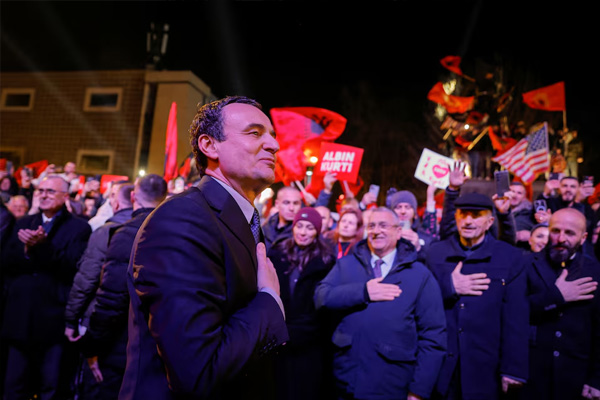
Kosovo on Sunday went to polls after a season of bitter election campaign in which opposition candidates targeted Prime Minister Albin Kurti over the economy, corruption and relations with the country’s old foe Serbia.
Kurti, a leftist and Albanian nationalist, came to power in the small Balkan country in 2021 when a coalition run by his Vetevendosje party received more than 50% of votes and secured a seven-seat majority in the 120-seat parliament.
Kurti’s Declining Popularity
Political analysts say his popularity has been bolstered by moves to extend government control in Kosovo’s ethnic Serb-majority north. But critics say he has failed to deliver on education and health, and his policies in the north have distanced the country from its traditional allies, the European Union and the United States.
The EU placed economic curbs on the country in 2023 for its role in stoking tensions with ethnic Serbs, cutting at least 150 million euros ($155 million) in funding, Reuters has found.
A drop below 50% of the votes for Kurti’s party could potentially prompt coalition talks after the election.
“Kosovo needs a change. It needs development and above all it needs to fix and cultivate relations with the United States and other West (European) friends,” said Ilir Fetahu, 50, who voted in capital Pristina.
Leading opposition parties include the centre-right Democratic League of Kosovo which has campaigned on restoring relations with the United States and the EU, and joining NATO; and the Democratic Party of Kosovo, also centre-right, founded by former guerrilla fighters of the Kosovo Liberation Army.
Nearly two million voters are registered in Kosovo. Voting started at 7 a.m. (0600 GMT) and will end at 7 p.m. Exit polls are expected soon after, and results later into the night.
Divisive Rhetoric
Kurti’s government has overseen some gains. Unemployment has shrunk from 30% to around 10%, the minimum wage is up and last year the economy grew faster than the Western Balkans average.
He says his policies in the north, which include reducing the long-held autonomy of Serbs living in Kosovo, are helping to bring ethnic Serbs and Albanians together under one system of government. But his rhetoric worries centrist politicians.
“When you have a bad neighbour, then you have to keep your morale high and your rifle full,” he said in a campaign speech near the Serbian border this week.
Differences of opinion have contributed to a bitter war of words with the opposition. The Elections Complaints and Appeals Panel, which monitors party and candidates’ complaints, has issued more than 650,000 euros in fines to parties this election season, three times the 2021 tally, data from NGO Democracy in Action show.
“It has never been better for us than right now (with this government). I hope there will be more of such a good days,” said Kumrije Prekaj, 44, who voted in Pristina.
Kosovo, Europe’s newest country, gained independence from Serbia in 2008 with backing from the United States, which included a 1999 bombing campaign against Serbian forces.
($1 = 0.9683 euros)
(With inputs from Reuters)




